The Sennheiser soundbar line-up is now complete, or at least we imagine it is, with the release of the Ambeo Soundbar Mini.
Customers now have a choice of the Ambeo Soundbar Max, Ambeo Plus, and Ambeo Mini to fit into their living rooms, and as you’d expect there are various differences between them all in terms of what they offer.
We’ve reviewed all three soundbars, and this feature will be taking a closer look at the Ambeo Plus and Mini soundbars. Which of the two is the soundbar that’s best for you?
Price
It likely won’t surprise you that the Ambeo Mini is the less expensive of the two soundbars. With an RRP of £699 / €799, that compares favourably with the £1299 / $1499 / €1499 of the Ambeo Plus. The Plus model is nearly twice as expensive as the Mini in some cases.
Does that mean it’s almost twice as good? You’ll find out by reading on…
Design
The clearest difference between the Ambeo Plus and Mini soundbars is the size of each unit. At just over a metre wide, the Ambeo Plus is suitable for TVs 65-inch and larger, while the Mini is best suited to TVs 55-inches and smaller.
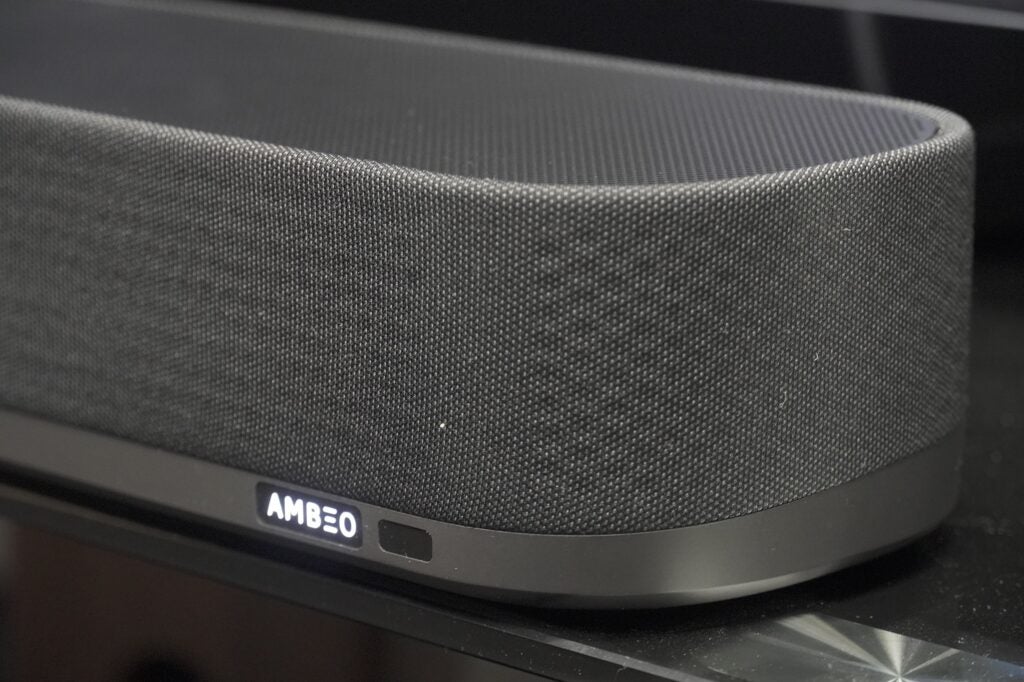
Size matters and the size of your room/space that you have available will dictate whether you should opt for the Ambeo Mini or Ambeo Plus. In fact this aspect quite possibly has a more vital impact on your choice than the audio performance.
The look of both soundbars is consistent with the same minimalist grey/black aesthetic, the curved lip at the front of the chassis, to the fabric covering, LED strip that indicates volume and LED light on the right that shows when the soundbar is powered on. They have the same aesthetic, it’s just that the Ambeo Mini is smaller.

It also weighs less at 3.3kg compared to the 6.3kg weight of the Ambeo Plus. That’s unlikely to be much of an issue if you’re placing either bar on an AV furniture. You may want to consider the size of the bar if you’re thinking of wall-mounting it.
Features
Other aspects that could influence your decision is that the Ambeo Mini does not feature any HDMI input, keeping things simple with just a sole HDMI input and USB-A port. The Ambeo Plus features three HDMI ports in total, with two HDMI inputs to plug in and pass through audio/video from other sources.
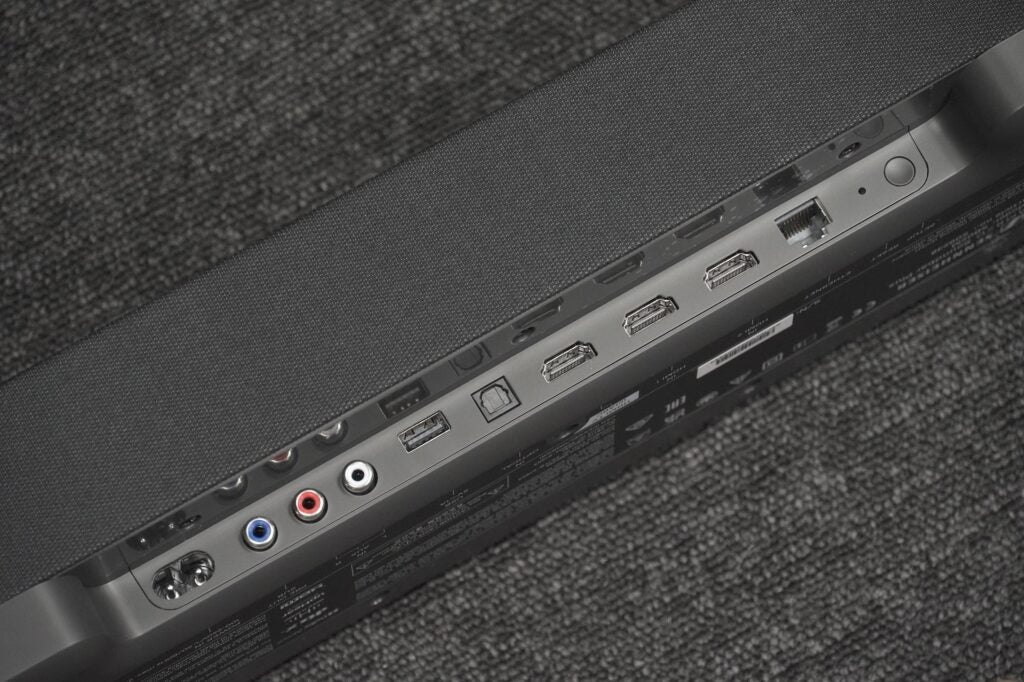
Otherwise the features on both soundbars are pretty much the same, due in part to Sennheiser’s Smart Control app. You can check the soundtrack that’s playing through the app, start the optimisation process, input selection, update firmware, select EQ modes, Night Mode, Voice Enhancement, and go into the minutiae of Dynamic Range and Dialogue control with soundtracks, plus much more.
Amazon Alexa voice control is supported (Google Assistant can be added by connecting the bar to another Google device). Music can be streamed over Wi-Fi and Bluetooth, with support for Spotify Connect and Tidal Connect, Apple AirPlay 2, and Chromecast.
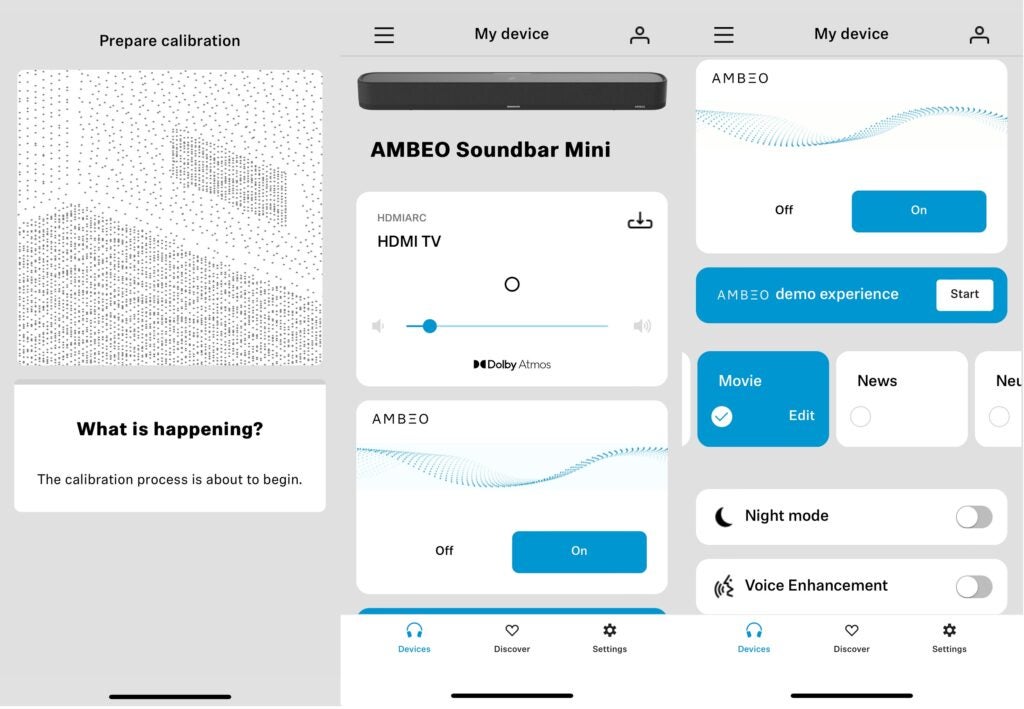
In terms of immersive audio there’s room for Dolby Atmos and DTS:X, naturally, with both the Ambeo Soundbar Plus and Mini compatible with 360 Reality Audio and MPEG-H. Whichever soundbar you end up opting for, the feature set is largely the same.
The Ambeo processing that enhances spatial audio for a taller and wider soundstage is present on both speakers. Turn it off and the immersive sound effect isn’t as large.
Sound Quality
Along with design, the audio is where the biggest differential in performance can be found.
The Ambeo Plus driver set-up consists of two 4-inch Cellulose Cone units and seven 2-inch Aluminium Cone full-range drivers. The Ambeo Mini has four 38mm full-range drivers and two 102mm bass drivers. This would indicate that the sound from the Ambeo Plus is wider, taller, and more impactful than the Ambeo Mini.
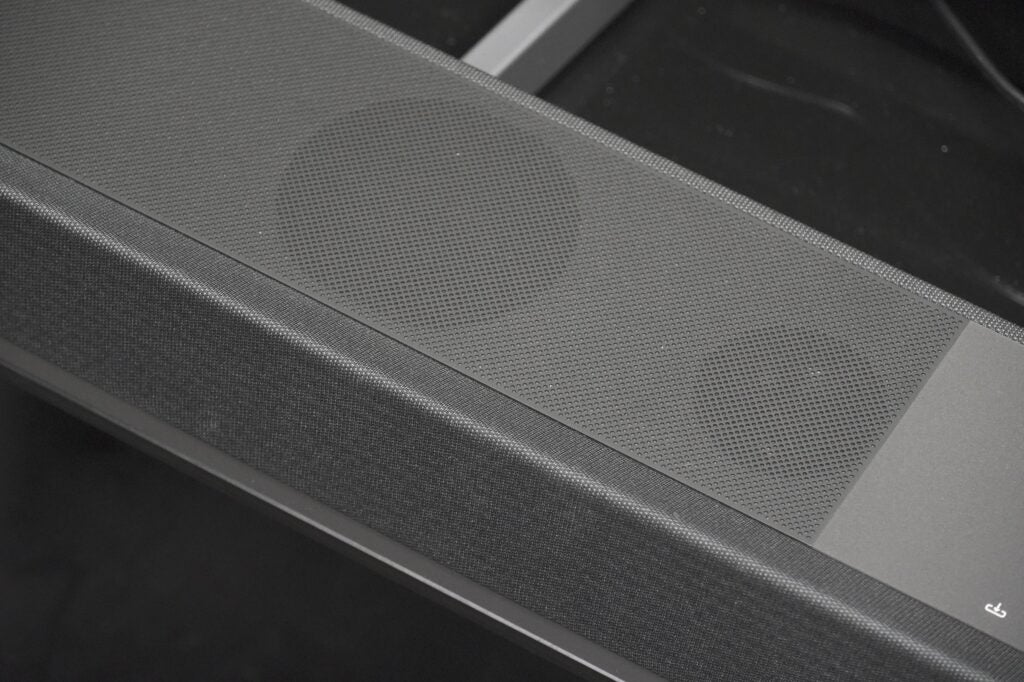
Frequency response for the Ambeo Plus is 38Hz – 20kHz, while the Ambeo Mini is 43Hz – 20kHz, which indicates the Ambeo Plus can dig deeper in terms of bass performance. Power output for the Plus is 400W while the Mini is 250W, another indication that the Plus model has much more energy and thrust behind its sound.
In real world terms, both soundbars are convincingly cinematic, boasting a great sense of dynamism, bass that digs deep without the addition of a subwoofer (both can support up to four Ambeo subwoofers).
The Ambeo Plus does a great job at projecting height and width, with a tangible sense of left, centre, right panning and height effects. The Ambeo Mini can produce a sound that’s far wider and taller than its size would indicate, but the sense of great height with spatial audio isn’t as convincing. While the sounds is certainly taller than a TV, it could perhaps reach further upwards, which again suggests that if placed in large rooms the height effect for the Ambeo Mini isn’t quite as impactful.
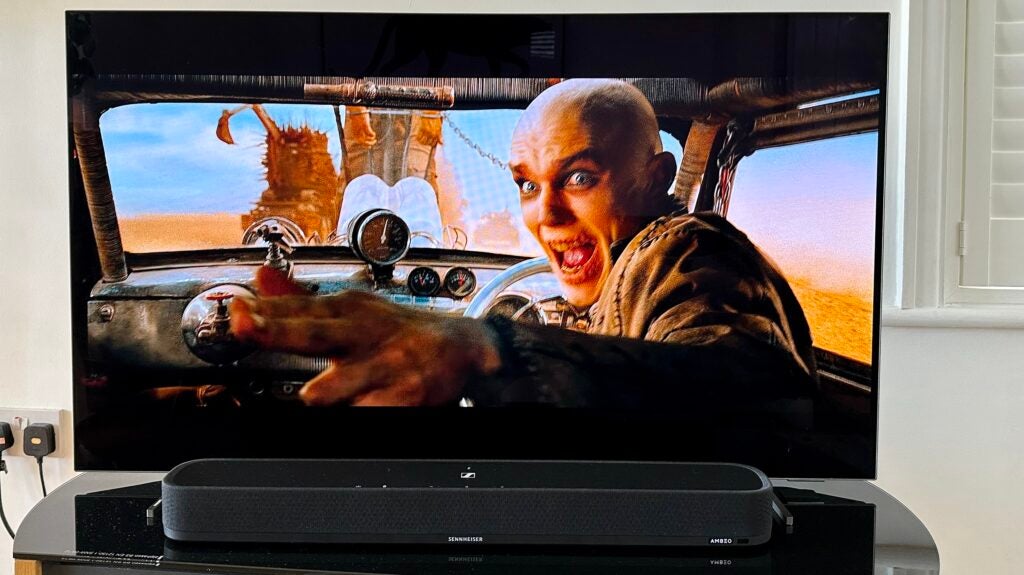
With music our reviewer found the Ambeo Plus put in a fun, nuanced performance with stereo content, with plenty of treble detail and melodious midrange performance. Our review of the Ambeo Mini implies that it also sounds good with stereo music content, if slightly small scale. When asked to virtualise stereo music into spatial audio, some of its composure deserts it.
Neither soundbar supports surround or rear speakers, so the performance of both is very front heavy, with no information delivered from behind the listening position.
Verdict
Both the Ambeo Plus and Mini soundbars are very good performers. Of the two, the Ambeo Plus is the better in terms of clarity, scale, and bass; its spatial audio performance is very impressive considering it’s a one-box solution.
However, size is important, and if you don’t have room for a soundbar as big as the Ambeo Plus or a TV that’s smaller than 65-inches, the Ambeo Mini is a more than adequate alternative, boasting the same feature set and similar audio quality.
The expense will also be a factor given the Ambeo Mini is several hundred pounds/dollars cheaper than the bigger bar, and both are more expensive than alternatives from other rivals.
The Ambeo Plus is the more fulfilling performer when it comes to spatial audio, but the Ambeo Mini is no slouch either. We feel the amount of space you have available will dictate which model you end up going for, though cost is a consideration to take into account too.








